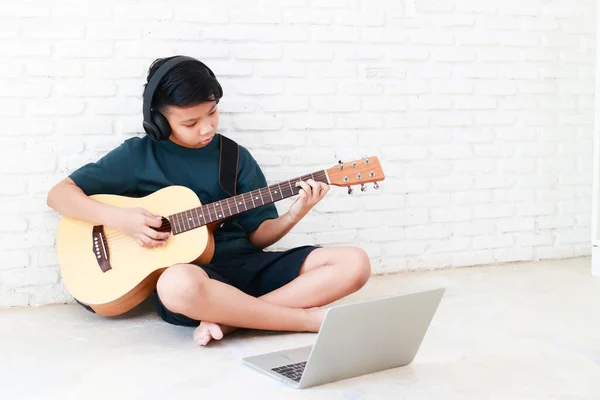Learning a few key phrases in the local language can transform your travel experience from awkward pointing and Google Translate sessions to genuine connections with locals. You don’t need to become fluent or spend months studying grammar rules.
The goal is simple: pick up enough essential phrases to navigate daily situations, show respect for the culture, and maybe even share a laugh with someone who appreciates your effort. Nothing opens doors quite like attempting to speak someone’s language, even if your pronunciation makes them chuckle.
Here is a list of 15 proven methods that will help you master basic local phrases quickly and effectively.
Start with Survival Phrases

Focus on the absolute essentials first — greetings, ‘please,’ ‘thank you,’ ‘excuse me,’ and ‘I don’t speak [language].’ These five phrases alone will carry you through countless interactions and show locals that you’re making an effort. Think of them as your linguistic survival kit, like carrying a first aid kit when hiking.
Most people will respond positively when they hear you attempt their language, even if your accent needs work. Once these become automatic, you can build on this foundation with more complex phrases.
Use the Mirror Method

Practice speaking phrases while looking at yourself in the mirror, paying attention to how your mouth moves when forming unfamiliar sounds. This technique helps you become comfortable with the physical act of speaking a new language without the pressure of an audience.
Your facial muscles need to learn new movements, just like learning to play a musical instrument requires finger training. The mirror also lets you catch habits like mumbling or speaking too quietly, which can make even perfect pronunciation hard to understand.
Like Travel Pug’s content? Follow us on MSN.
Learn Through Music and Rhythm

Turn basic phrases into simple songs or chants with a catchy rhythm. Your brain remembers melodies much better than random words, which is why you can probably still recite commercial jingles from childhood. Create a simple tune for common phrases like ordering food or asking for directions.
The rhythm makes the phrases stick in your memory, and you’ll find yourself humming them throughout the day, which provides extra practice without feeling like work.
Practice with Local Audio Content

Listen to local radio stations, podcasts, or YouTube videos in the target language, even if you only understand a few words. Your ear needs time to adjust to the natural rhythm, speed, and intonation of the language. It’s like tuning a musical instrument — the more you listen, the better you recognize what sounds ‘right.’
Start with content that includes lots of repetition, like news broadcasts or children’s programs, where key phrases appear frequently.
Use the Shadowing Technique

Play audio of native speakers and repeat what they say immediately after hearing it, like an echo. This method trains your mouth and brain to work together at a natural speaking speed.
Think of it as linguistic muscle memory development. Don’t worry about understanding every word initially — focus on matching the sounds, rhythm, and intonation. Professional interpreters use this technique because it builds the automatic responses you need for real conversations.
Like Travel Pug’s content? Follow us on MSN.
Create Situation-Specific Phrase Cards

Make flashcards organized by situations rather than random vocabulary — one set for restaurants, another for transportation, and another for shopping. This approach mirrors how you’ll use the language in real life. When you’re standing in a bakery, you don’t need to remember words for ‘library’ or ‘hospital.’
Grouping phrases by context makes them easier to recall when you’re in that specific situation, like having the right tool ready when you need it.
Find a Language Exchange Partner

Connect with someone who wants to learn your language while teaching you theirs. Apps like HelloTalk or Tandem make this easier than ever, or you can find local meetups in your area. Having a real person to practice with adds accountability and makes learning more enjoyable than studying alone.
They can correct your pronunciation immediately and teach you casual expressions that textbooks often miss. Plus, explaining concepts in your own language reinforces your understanding of how languages work.
Use Spaced Repetition Apps

Download apps like Anki or Memrise that use scientifically-proven timing to help you remember phrases long-term. These apps show you phrases just before you’re about to forget them, which strengthens your memory more effectively than random review.
It’s like exercising a muscle at just the right intensity to make it stronger. Five minutes of spaced repetition daily beats cramming for hours once a week. The apps track your progress and adjust the difficulty automatically.
Like Travel Pug’s content? Follow us on MSN.
Immerse Yourself in Media

Watch local TV shows, movies, or YouTube channels with subtitles in your native language first, then switch to local language subtitles as you improve. This exposes you to natural conversation patterns and cultural context that formal lessons often miss.
Choose content slightly below your current level so you can follow along without getting frustrated. Cooking shows work particularly well because the actions match the words, making meaning clearer through visual context.
Practice the Gesture-Word Connection

Learn phrases while using the natural hand gestures that accompany them in that culture. Many languages rely heavily on body language to convey complete meaning. Connecting physical movements with words creates stronger memory pathways in your brain.
It’s similar to how you probably remember dance moves better when they’re paired with specific songs. This approach also helps you understand local communication styles and avoid accidentally offensive gestures.
Master One Conversation at a Time

Choose a specific conversation scenario — like ordering coffee — and learn that entire interaction perfectly before moving to the next one. This gives you confidence in real situations because you’ve rehearsed the complete exchange.
It’s like learning to play one song well before starting another, rather than playing bits of many songs poorly. Once you can handle coffee ordering smoothly, tackle asking for directions or making small talk about the weather.
Like Travel Pug’s content? Follow us on MSN.
Use Technology as Your Training Partner

Set your phone’s language to the local language for the basic functions you use daily. This forces you to learn essential words like ‘settings,’ ‘messages,’ and ‘camera’ through necessity rather than memorization. Your brain learns faster when there’s a practical reason to remember something.
Start with apps you know well, so you can navigate by memory while your brain processes the new vocabulary. Change it back if you get stuck, but try to last a little longer each time.
Record and Review Your Progress

Use your phone to record yourself speaking phrases, then compare your pronunciation to native speakers. Most people hate hearing their own voice, but this technique reveals pronunciation problems you can’t notice while speaking.
It’s like watching a video of your golf swing to spot technique issues. Record the same phrases weekly to track your improvement over time. The progress you hear will motivate you to keep practicing.
Learn Through Local Food Culture

Visit ethnic restaurants and practice ordering in the local language. Food vocabulary is essential for travelers, and restaurant staff often appreciate the effort even if your pronunciation isn’t perfect. The immediate reward of getting the food you wanted reinforces successful communication.
Start with simple items and work up to more complex orders. Many restaurants in ethnic neighborhoods are happy to help customers learn basic phrases, especially during slower periods.
Like Travel Pug’s content? Follow us on MSN.
Connect Words to Physical Objects

Label items around your house with their names in the target language, focusing on objects you use daily. Every time you reach for your coffee mug, you’ll see and think the word in the new language.
This creates multiple daily encounters with vocabulary without dedicated study time. Your brain forms stronger connections when words link to physical objects rather than abstract concepts. Replace the labels weekly with new vocabulary to keep expanding your practical word knowledge.
Beyond Tourist Basics

Learning local phrases fast isn’t about becoming conversational overnight — it’s about building bridges between yourself and the people whose homeland you’re visiting. These 15 methods work because they mirror how children naturally acquire language: through repetition, context, and genuine need to communicate.
The phrases you learn to use these techniques will serve you far beyond your next trip, creating a foundation for deeper cultural understanding. When locals hear you making the effort to speak their language, you’re not just a tourist passing through — you become someone worth getting to know.
More from Travel Pug

- 20 Best Beach Towns in the Carolinas
- 13 Destinations Where Tourists Regularly Regret Their Trip
- 20 Things You Actually Get in First Class
- 20 Small Airports With Aviation Museums
- 20 Places in the U.S. That Are Perfect for a Reset Trip
Like Travel Pug’s content? Follow us on MSN. content? Follow us on MSN.
